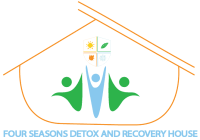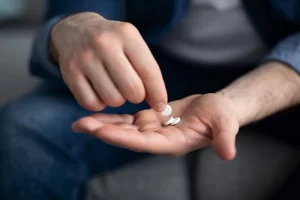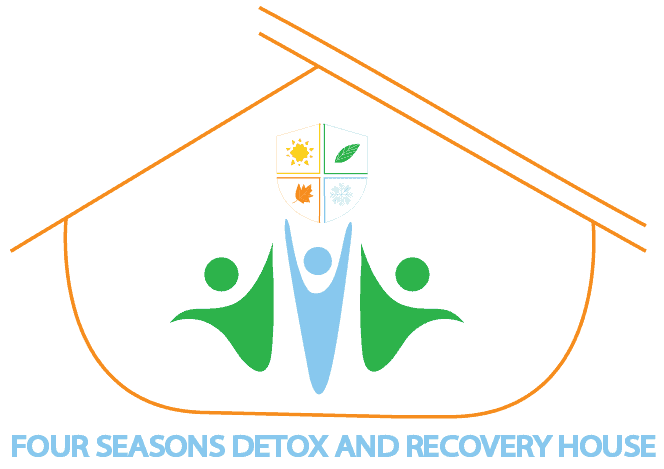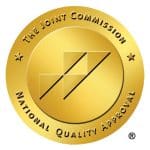One of the major components of rehabilitation is group therapy and a component that many addiction experts believe is an essential part of recovery. Most rehabilitation centers offer group therapy, which is highly effective for recovery. However, some may feel apprehensive about therapy in general.
What is Group Therapy?
Group therapy involves a group of people struggling with addiction, along with one or more therapists. In group therapy, individuals share their experiences and struggles while the therapist guides the conversation.
Group therapy can be enormously healing. For one thing, as many people know, addiction is a lonely and isolating experience. Addiction can come with a lot of shame and alienation as we feel that those around us don’t understand what we’re going through. By joining a therapy-based network of fellow addicts, we’re able to support each other and learn from each other. Also, it helps us to understand ourselves better through others’ stories and thoughts.
Typically, group therapy sessions are held once or twice a week. Sometimes, they may take place daily, depending on the type of environment. Both inpatient and outpatient treatments offer group therapy, but inpatient therapy is believed to be more effective.
Group Therapy vs. Individual Therapy: Which is More Effective?
Generally, rehab involves two forms of therapy: group therapy and individual therapy. Naturally, many people wonder which one is more effective. In reality, it’s really hard to compare them, as each of them plays an important role in recovery.
Group therapy finds support through similar experiences, while individual therapy is essential for addiction recovery. For one thing, individual therapy allows all of the focus to be on you. During the session, your therapist will provide you with personalized advice, tools, and care. Whereas in group therapy, it’s really hard to get an individualized experience.
There’s a reason why the two forms of therapy are typically used at the same time during recovery. Each has a unique purpose and can help you get your life back on track.
Rehabilitation centers offer both group and individual therapy, but these therapies are also available outside of a treatment center.
The Benefits of Group Therapy in Addiction Recovery
It’s really hard to argue with the value of group therapy as a critical part of addiction recovery. While individuals do not necessarily require it, group therapy can provide undeniable benefits that can last long after the initial treatment stage is over.
Some of those benefits are:
· Motivation: People are more likely to maintain sobriety when they have the support of a group of others. As each member plays a role in motivating one another and holds each other accountable.
· Emotional Support: As we said, addiction tends to be a very lonely experience. Without the emotional support of others who understand what it’s like, you may end up feeling isolated and alienated, having a hard time connecting with others. Group therapy provides you with a network of people who are in the same place as you are and can empathize with you to make you feel validated, understood, and supported.
· The Opportunity to Share: Many people who have gone through addiction have a lot of feelings, thoughts, and experiences that they’ve learned to suppress due to shame or a fear of not being understood. But, as we all know, bottling up one’s feelings and thoughts can cause low self-esteem, self-destructive behaviors, and even physical health issues. Sharing thoughts with a supportive group can improve mental health and reduce the shame associated with addiction.
· Consistency/Routine: Committing to group therapy once or twice a week can be a critical part of staying in recovery rather than relapsing. It’s important to have it as part of a weekly routine for accountability and consistency during the recovery process.
The Importance of Active Participation in Group Therapy
One thing that we do want to touch on is the importance of actually participating in group therapy. There’s a difference between attending meetings and actually playing an active role in the conversation and experience.
The first one or two times, you may feel shy, and that’s natural. You may not be ready to open up on a deep level and connect with the group. But, a therapist should encourage you to start taking on a more active role because the only way to really maximize the experience is to engage in it, share with others, and form bonds with the group through communication.
Creating a Supportive Community in Group Therapy
Group therapy is meant to be a mutually supportive and generally positive experience for everyone involved. Because of this, there are some general guidelines that you should follow both for yourself and for the greater good of the group.
1. Resist judgment: Humans are judgmental creatures by nature, but group therapy is not the time to judge others for their actions. This is meant to be a safe space, and judgment can cause members of the group to feel self-conscious about sharing again in the future.
2. Try not to preach: Resist the desire to preach to others about what you believe they should do as part of their recovery. Each person’s journey is unique, and it’s the job of a therapist to offer guidance.
3. Follow the guidance of the therapist: Ultimately, the therapist in the group is the one who should direct the experience rather than you. Don’t try to overrule them by directing conversation beyond the boundaries of what the therapist has set.
Get the Support You Need Today
Group therapy can provide validation, support, and motivation to maintain sobriety during addiction recovery. If you’re looking for a group environment that can serve as a safe space with licensed specialists, consider getting in touch with Four Seasons Detox.






